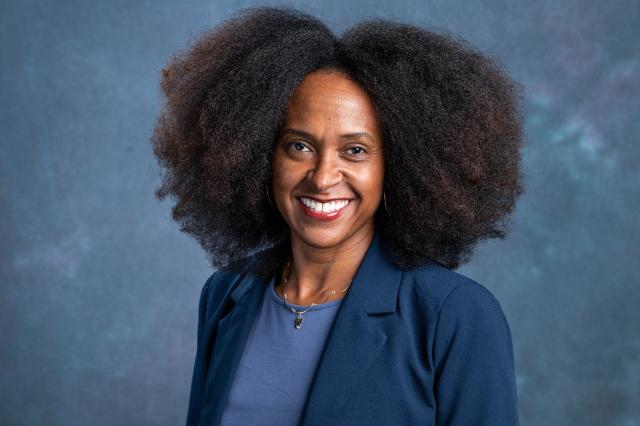Kean Faculty Researcher Q&A: Saran Nurse, Ph.D.

Saran Nurse, Ph.D.
An assistant professor in the Kean College of Business and Public Management, Saran Nurse, Ph.D., teaches courses in entrepreneurship, business ethics and corporate social responsibility. She conducts research in the areas of racial disparities in entrepreneurial outcomes, gender and entrepreneurship, and small business resilience. Formerly an Equity in Action Presidential Fellow at Kean, she holds an MBA from Georgetown University and a doctorate in public and urban policy from The New School.
Q: What are the big issues in your research area?
My research is situated within the field of entrepreneurship, where there has been a growing push—similar to trends in management and other disciplines—to decolonize knowledge. This involves recognizing that dominant theories may not be universally applicable, particularly for entrepreneurs from marginalized backgrounds. There is an increasing need to understand the diversity of entrepreneurship: how factors such as race—and consequently racism—gender, and geography shape entrepreneurial motivations, performance and outcomes in different ways. My research focuses specifically on Black entrepreneurs, examining how structural racism impacts their experiences and how they demonstrate resilience in response. Aligned with recent calls for greater methodological diversity in entrepreneurship research, my work draws on qualitative and participatory approaches that center lived experiences and amplify voices often excluded from traditional research narratives.
Q: In one sentence, what is the most important question you want to address?
How can entrepreneurship ecosystems become more inclusive—through culture, support and policy—to produce better outcomes for entrepreneurs of color, particularly Black entrepreneurs?
Q: What has been the impact of your research?
My research has had multi-level impact—academic, societal and community-based. Academically, I’ve contributed to the literature by challenging dominant frameworks in entrepreneurship. For example, a forthcoming article in the Journal of Management Studies (an FT-50 journal) redefines resilience not merely as an individual trait, but as shaped by both internal capacity and external support—resources Black entrepreneurs often lack, forcing them to rely more heavily on self-reliance. I’ve also introduced new methodologies to entrepreneurship research, including autoethnography and group model building, expanding how we study marginalized entrepreneurial experiences.
At the societal level, I’ve shared my research with policymakers to inform more inclusive policies. I prioritize disseminating findings beyond academia by engaging with community organizations, practitioners and the broader public. One example is the JET Community for Black Entrepreneurs, a research-informed initiative supported by a grant from the Kauffman Foundation. JET provides mentorship, a referral network and monthly forgivable loans to address the financial capital gap Black entrepreneurs face. This initiative not only supports local entrepreneurs but also serves as a model for how research can drive direct community impact. I’ve also mentored students through active involvement in my research, offering them opportunities to engage in meaningful, real-world scholarship.
Q: The university is eager to serve the urban community. Does your research have any potential in this area?
Absolutely. My research naturally aligns with urban communities, particularly given the high concentration of Black entrepreneurs in these areas. Many of my research participants are based in local urban settings, and my work directly engages with issues of urban change—most notably, the impact of gentrification on Black-owned businesses. These insights inform the development of policies and programs aimed at fostering urban economic resilience and equity, making my research highly relevant to the University’s mission of serving the urban community.
Q: We are eager to develop collaborations between departments. What opportunities for multi-disciplinary work does your research offer?
Entrepreneurship scholarship is inherently interdisciplinary. My work on resilience draws from sociology, ecological studies, psychology and engineering. I’m continually seeking to integrate theories and perspectives from other fields to deepen my understanding of entrepreneurial experiences. For example, my research shows that while Black entrepreneurs often demonstrate psychological resilience, this can come at the expense of physical well-being—underscoring the importance of incorporating public health and wellness into entrepreneurship studies. I’ve also engaged with colleagues in design and architecture, as inclusive entrepreneurship requires the creation of inclusive physical and social spaces.
I collaborate extensively with the John S. Watson Institute for Public Policy to ensure that my research informs real-world, structural solutions. Policy is a critical lever in dismantling the barriers faced by Black entrepreneurs, and I firmly believe in the tangible impact that can result from strong partnerships between academia and policy—particularly at the local level, where our work has the potential to directly shape outcomes. I look forward to continuing and expanding these collaborations and hope to see more scholars engaging in cross-disciplinary work that translates research into meaningful action.
Q: What advice would you give to a new researcher about working with students on research?
Involve students early and treat them as collaborators rather than just assistants. Encourage them to connect their academic learning to real-world issues and create opportunities for them to engage in community-based research. It’s incredibly rewarding to witness students gain confidence and develop a sense of purpose as they contribute meaningfully to the research process.
Q: If Kean gave you additional resources, what would you do with them? If you had additional resources, what would you do with them?
With additional resources, I would expand my community-based research and deepen participatory action research initiatives that focus on inclusive entrepreneurship. This would include scaling up research-informed programs like the JET Community for Black Entrepreneurs to reach more neighborhoods, co-creating pilot projects with local urban communities and generating new research insights on how to support marginalized entrepreneurs. My goal is to use research not just as a tool for knowledge production, but as a vehicle for tangible, real-world impact—especially in under-resourced areas. These efforts would strengthen community-university partnerships and contribute to building more equitable and inclusive entrepreneurial ecosystems.